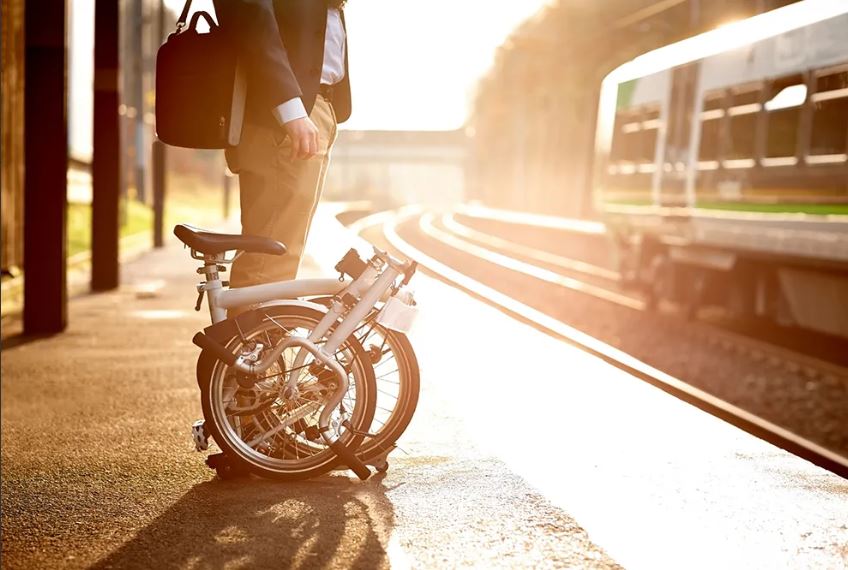I think you’re searching that Are Folding Bikes Uncomfortable?
Well!
You’re on right place because we already have worked for you. Folding bikes have gained popularity over the years as a convenient and eco-friendly mode of transportation.
They are compact, versatile, and ideal for urban commuters, travelers, and anyone looking to save space.
However, there’s a common misconception that folding bikes are uncomfortable due to their compact design and smaller wheels. In this article, we will debunk this myth and explore the comfort aspects of folding bikes.
The Compact Design
One of the primary reasons people believe that folding bikes are uncomfortable is their compact design. Folding bikes are designed to be easily folded and stored in small spaces, making them perfect for those with limited storage space at home or work.
However, this compact design often raises concerns about comfort, particularly when compared to traditional full-sized bicycles.
It’s important to understand that the compact design of folding bikes doesn’t necessarily make them uncomfortable.
While it’s true that they have smaller frames and wheels than standard bicycles, modern engineering and design innovations have made significant strides in improving the comfort of folding bikes.
Comfort Factors to Consider
To determine whether folding bikes are uncomfortable, let’s examine various comfort factors associated with cycling and how folding bikes measure up:
- Frame Material: Folding bike frames are typically made from lightweight materials like aluminum, carbon fiber, or steel. These materials provide a comfortable ride by absorbing road vibrations and shocks. The choice of frame material can greatly influence the bike’s overall comfort.
- Geometry: Folding bikes come in various frame geometries, including upright and more relaxed riding positions. The choice of geometry can impact the comfort of your ride. Many folding bike models prioritize a more upright riding position for better comfort, especially during short commutes.
- Seat and Saddle: The comfort of a bicycle ride heavily depends on the saddle. Most folding bikes come with adjustable seats, allowing you to find the right height and angle for your comfort. You can also invest in a more comfortable saddle if needed, just as you would with a regular bicycle.
- Wheel Size: Folding bikes typically have smaller wheels than standard bicycles. However, this doesn’t necessarily mean they are less comfortable. Smaller wheels can provide a more responsive and agile ride, making them well-suited for navigating crowded urban areas.
- Suspension: Some folding bikes are equipped with suspension systems, which can significantly enhance comfort by absorbing bumps and shocks from uneven road surfaces. If comfort is a top priority, you can opt for a folding bike with front or rear suspension.
- Tires: The choice of tires can impact comfort as well. Wider tires with lower pressure provide a smoother ride and better shock absorption, enhancing overall comfort. Many folding bikes allow you to customize your tire choice to suit your riding style and terrain.
- Handlebars: Folding bikes offer a variety of handlebar styles, including flat bars, drop bars, and even adjustable stems. Choosing the right handlebar style can improve your riding comfort by allowing you to find a comfortable and ergonomic hand position.
Comfort Tips for Folding Bike Riders
If you’re concerned about the comfort of your folding bike, here are some additional tips to enhance your riding experience:
- Proper Fit: Ensure that your folding bike is properly sized for your height and reach. An ill-fitting bike can lead to discomfort and pain during rides.
- Regular Maintenance: Keep your folding bike well-maintained, including checking tire pressure, lubricating moving parts, and adjusting brakes. A well-tuned bike is more comfortable to ride.
- Accessories: Consider adding accessories like ergonomic grips, padded gloves, and suspension seat posts to improve comfort during your rides.
- Riding Techniques: Learning proper riding techniques, such as maintaining a relaxed grip on the handlebars and using your core muscles for stability, can help reduce discomfort during rides.
- Test Ride: Before purchasing a folding bike, if possible, take it for a test ride to evaluate its comfort and performance.
Conclusion – Are Folding Bikes Uncomfortable?
The belief that folding bikes are uncomfortable is a myth that doesn’t hold up to scrutiny.
While folding bikes do have a compact design and smaller wheels compared to traditional bicycles, they offer a comfortable riding experience when chosen and set up correctly.
Modern folding bikes come with various features and design options that prioritize rider comfort. Factors like frame material, geometry, seat, suspension, tires, and handlebars can all be customized to enhance comfort.
Additionally, proper fit and maintenance play crucial roles in ensuring a comfortable and enjoyable riding experience.
Ultimately, whether a folding bike is comfortable or not depends on individual preferences and specific use cases.
With the right choices and adjustments, folding bikes can provide a comfortable and convenient mode of transportation for urban commuters and travelers alike. Don’t let the misconception about their comfort deter you from exploring the world of folding bikes.


